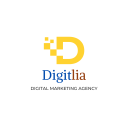In today’s digital age, where the world is just a click away, businesses have shifted their strategies to the online realm to reach wider audiences and boost their success. This shift has given rise to a powerful tool known as digital marketing. So, who benefits from digital marketing, what exactly is it, why is it crucial, and how can you harness its potential? Let’s dive into the exciting world of digital marketing, exploring its key aspects and real-world examples.
Who Benefits from Digital Marketing?
Digital marketing isn’t just for big corporations or tech-savvy entrepreneurs; it’s for everyone aiming to make a mark in the online space. Small businesses, startups, non-profit organizations, and even individuals looking to build a personal brand can benefit immensely from digital marketing. For instance, imagine a local bakery that wants to expand its customer base. By using social media platforms like Instagram and Facebook, they can showcase their delectable treats, engage with customers through comments and messages, and even run targeted ads to reach people in their vicinity.
What is Digital Marketing?
At its core, digital marketing involves promoting products or services using digital channels such as websites, search engines, social media, emails, and more. It’s about connecting with the right audience in the right place at the right time. Consider search engine optimization (SEO) as an example. When you type “best travel destinations” into Google, the websites that appear on the first page have mastered SEO. They’ve strategically used relevant keywords, created quality content, and earned reputable backlinks, making them more likely to be clicked by users seeking travel ideas.
Why is Digital Marketing Crucial?
The world has become a digital playground, with people spending a significant chunk of their time online. As a result, traditional marketing methods alone may not reach your target audience effectively. This is where digital marketing comes into play. It allows you to access a global audience without geographical constraints. Let’s take influencer marketing as an illustration. When a fashion influencer on Instagram promotes a clothing brand, their followers, who might be scattered across the world, can instantly see and engage with the content. This kind of exposure was much harder to achieve with traditional print advertisements.
How Can You Leverage Digital Marketing?
Now that we’ve established the importance of digital marketing, let’s explore how you can utilize its various components to your advantage.
- Social Media Marketing: Platforms like Facebook, Instagram, Twitter, and LinkedIn offer powerful tools to engage with your audience. A fitness coach, for instance, can share workout videos, healthy recipes, and motivational content to attract and retain clients.
- Content Marketing: Creating valuable and relevant content not only showcases your expertise but also drives organic traffic to your website. A gardening blog that shares tips on plant care and landscaping can establish itself as a go-to source for gardening enthusiasts.
- Email Marketing: Building an email list allows you to directly connect with your audience. A software company can send out newsletters detailing product updates, industry insights, and special offers to keep subscribers engaged.
- Search Engine Marketing (SEM): Using paid strategies like Google Ads can ensure your website appears at the top of search results. A local plumbing service can bid on keywords like “emergency plumber” to show up when someone urgently needs their services.
- Affiliate Marketing: Collaborating with affiliates who promote your products can expand your reach. A skincare brand can partner with beauty bloggers to review and recommend their products, tapping into the bloggers’ dedicated followers.
- Video Marketing: With platforms like YouTube, you can create engaging videos to showcase products or explain concepts. An educational platform can use video tutorials to help students understand complex topics better.
- Analytics and Data Analysis: Monitoring your digital marketing efforts through tools like Google Analytics provides insights into what’s working. An online bookstore can track which marketing campaigns are driving the most book sales and tailor future strategies accordingly.
Conclusion
Digital marketing is a dynamic and essential tool for businesses and individuals alike. Its ability to transcend boundaries, engage diverse audiences, and provide measurable results makes it an indispensable part of modern-day success stories. Whether you’re a local coffee shop, an aspiring musician, or a global e-commerce giant, embracing digital marketing can unlock a world of possibilities.
As we’ve explored the who, what, why, and how of digital marketing, it’s clear that this digital frontier is ripe with opportunities for those willing to navigate it. So, if you’re looking to elevate your brand, connect with your audience, and achieve your goals in the digital age, there’s no better time to embark on your digital marketing journey. Remember, in this fast-paced digital landscape, the key to success lies in staying informed, adapting to trends, and engaging with your audience in meaningful ways.

